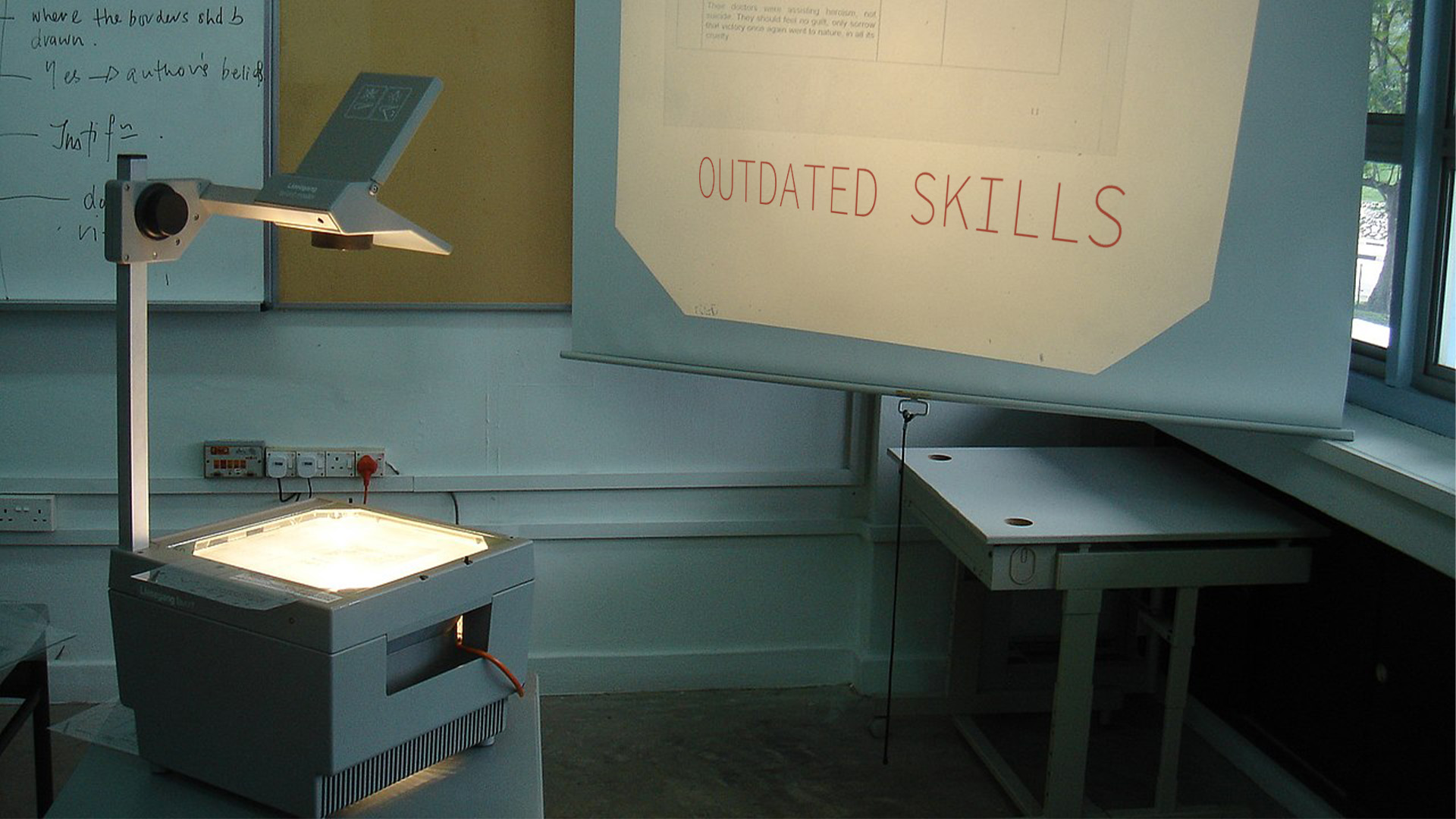Years ago, I was sent on a two-day training course to learn how to use an overhead projector. That probably dates me a bit, but back then, it felt like a genuinely valuable skill. We were taught how to layer transparencies, adjust the light without blinding people, and how to keep eye contact with the audience while flipping slides around with the swagger of a seasoned pizza chef.
I left that course feeling oddly proud. Master of the OHP.
Then, not long after…that was completely obsolete. Just like that. The tools changed, and all that carefully learnt skill was suddenly irrelevant.
Looking back, I think that experience planted a seed. It made me realise that our skills — no matter how useful they feel in the moment — are always temporary. They leak. They expire. And if we’re not prepared for that, we risk holding on for too long.
What’s tricky is that we often like the skills we’ve worked hard to gain. They’re familiar. They’re part of us. They’ve earned us promotions, praise, respect.
And letting them go can feel like giving up a part of ourselves. But just because something was once useful doesn’t mean it always will be. And clinging to old skills out of loyalty or habit can quietly hold us back, especially when the everything in the world around us keeps evolving.
I’ve worked with so many people who hit this tension point in their careers. They’re smart. Experienced. Capable. But they start noticing that the very things that once made them successful are no longer relevant or valued. A new platform appears. A different workflow takes hold. Their team starts using tools they’ve never heard of. And suddenly, that edge they once had? It begins to dull.
What makes this harder is that no-one tells you when a skill stops being useful. There’s no big announcement. It just… stops getting called for.
You find yourself left out of certain conversations. Your projects shift in someone else’s direction. Your confidence takes a knock, and it’s not always clear why.
I’ve been there.
The challenge isn’t just about learning new things. It’s about unlearning — being willing to loosen your grip on the ways of working that used to serve you. That’s hard to do. Especially when those skills took years to build. But it’s also where growth lives.
Letting go doesn’t mean starting from scratch. It means making space. It means asking: what’s getting in the way of the next version of me?
One of the most common mindset traps I see is this idea that “If I just keep sharpening the skills I already have, I’ll be fine.” But in a world that’s shifting faster than ever, maintenance isn’t enough. At some point, what got you here genuinely won’t get you there. And it’s not a reflection of your ability — it’s a reminder to keep adapting.
I often encourage people to do something I call a “usefulness audit.” It’s not scientific; just a simple question: which of my skills have been genuinely useful today, and which am I relying on because they feel comfortable?
It’s not about judgement, but awareness. And sometimes, that awareness is all it takes to build a fresh momentum.
The good news is that the skills you need next don’t have to be technical. Often, they’re mindset-based. Curiosity. Comfort with ambiguity. The courage to learn out loud, even if it means asking “obvious” questions in front of others.
When you start operating that way, something changes. You stop measuring your worth by what you already know, and start valuing your ability to respond, to flex, to move forward.
That’s a lot of what being future-ready really means. Not clinging to everything you’ve learned, but trusting yourself enough to learn again.
And if that feels like a shift you want to explore — if part of you knows you’ve been holding onto habits or skills that aren’t helping anymore — you might enjoy my new book. It’s called ReadyAlready, and it’s all about how to stay relevant, useful, and confident in a world that won’t stop changing.
It’s not theory, but a practical, honest toolkit for people who still have more to give, and want to give it in the right direction. And it’s all based on decades of helping people and organisations navigate a professional landscape that seems to be changing faster by the day.
You can pick up your copy now from the links on the page below:
>> https://allisterspeaks.com/readyalready/#ReadyAlreadyBook
To keeping up!
Allister

